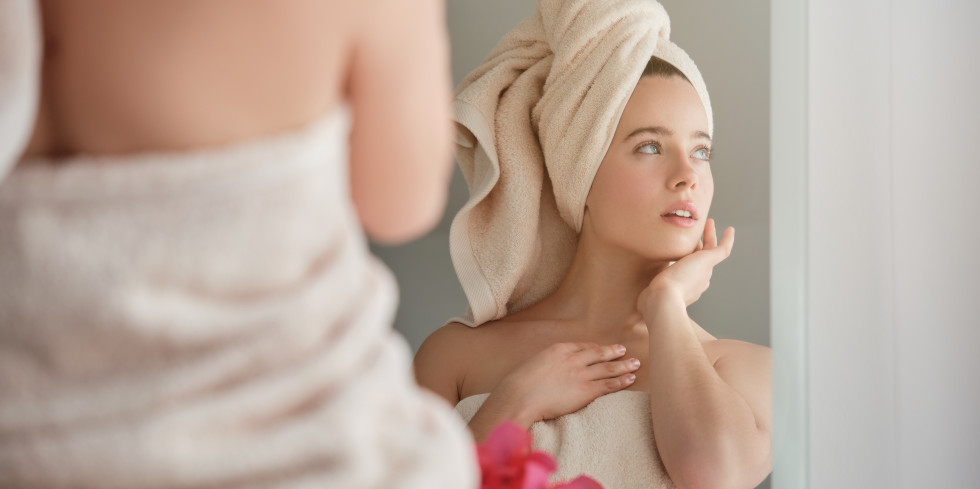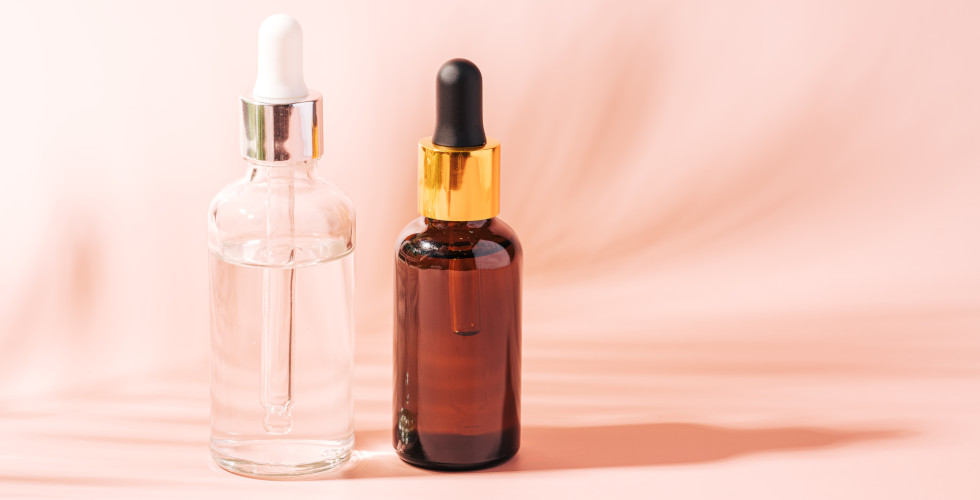If you’ve ever researched topical anti-aging treatments, you’ve surely come across retinol.
Retinol is one of the most prominent and widely recommended treatments for skin aging. It’s a vitamin A derivative that many people use to fend off wrinkles, discoloration, and sagging skin.
But, despite its popularity for signs of aging, some people wonder whether retinol can make wrinkles worse. In this article, we’ll explore this topic and explain how to properly use retinol for rejuvenating benefits.
Contents
- Can Retinol Cause Wrinkles?
- FAQs: Can Retinol Make Your Wrinkles Look Worse?
- Q: Can retinol bring out wrinkles?
- Q: Why does my skin look worse after retinol?
- Q: Does retinol make you age faster?
- Q: Can retinol make your face worse?
- Q: What do Retin-A before and after wrinkles pictures reveal?
- Q: Can you use retinol under eyes or on the eyelids?
- Q: Does Retin-A tighten skin under eyes?
- Q: Can eye cream cause wrinkles? What about under-eye concealer?
- Q: What happens if you use too much retinol?
- Q: Can retinol make dark spots worse?
- Q: Can retinol cause hyperpigmentation and discoloration?
- Q: Can retinol darken skin?
- Q: How can I know when to stop using retinol?
- Q: What are the long-term effects of retinol and retinoids, like Differin?
- Q: Is retinol bad for you?
- Q: What happens if you stop using tretinoin?
- Q: What are the side effects of retinol for dark skin?
- Q: Can retinol lighten skin?
- Q: Does retinol make your face red?
- Conclusion: Using Retinol for Wrinkles
Can Retinol Cause Wrinkles?
In short, no – when it’s used correctly, retinol doesn’t cause wrinkles. Instead, it promotes smoother, tighter, and more even skin by increasing collagen production and speeding up the skin cell cycle. [R]

With that said, retinol can dry out the skin in certain circumstances. If retinol causes excess dryness, it can make the skin appear thinner, tighter, and potentially more wrinkled.
Retinol may cause dryness if:
- You recently started using retinol and your skin hasn’t yet adjusted to it. It can take around a month for the skin to adjust to retinol. [R]
- You’re using too high of a retinol concentration or applying it too frequently. If you’re experiencing dryness with retinol use, consider using a lower strength or only applying the retinol a few times per week, instead of daily. [R]
- You need to apply a moisturizer before your retinol product to prevent irritation. [R]
- You’re not applying enough sunscreen before heading outside. Retinol increases sun sensitivity, so sun exposure can cause excess dryness or irritation while you’re using retinol. Make sure to apply sunscreen with SPF 30 or higher every morning, and reapply every 2 hours when you’re spending time outside. [R]
ALSO READ: Which is Better for Wrinkles; Retinol or Hyaluronic Acid
FAQs: Can Retinol Make Your Wrinkles Look Worse?
Q: Can retinol bring out wrinkles?
No, when retinol is used properly, it reduces the appearance of wrinkles by increasing collagen production. [R]
Q: Why does my skin look worse after retinol?
Your skin may look worse after using retinol if:
– Your skin hasn’t yet adjusted to the retinol.
– You’ve received too much UV-ray exposure.
– You’re using too high of a retinol concentration.
– Your skin isn’t adequately moisturized.
Q: Does retinol make you age faster?
No, retinol doesn’t speed up the aging process. It reduces and even prevents signs of aging by thickening the epidermis. [R]
Q: Can retinol make your face worse?
Retinol can cause redness, irritation, and dryness. You can avoid these unwanted effects by starting with a low retinol concentration, only using retinol a few days per week, and applying sunscreen before spending time outside.
Q: What do Retin-A before and after wrinkles pictures reveal?
Before and after photos of Retin-A and other forms of retinol reveal that this anti-aging ingredient can smooth and firm the skin while fading discoloration. [R]
Q: Can you use retinol under eyes or on the eyelids?
Don’t use retinol on the eyelids or around the eyes unless the product (or your dermatologist) specifically states that it’s safe to do so. Certain retinol products can irritate the thin skin around the eyes, especially if you have sensitive skin.
Q: Does Retin-A tighten skin under eyes?
Retin-A, which is the brand name for tretinoin, shouldn’t be used around the eyes, as it can irritate the delicate skin in this area. [R]
Q: Can eye cream cause wrinkles? What about under-eye concealer?
Eye cream isn’t thought to directly cause wrinkles. On the contrary, keeping the delicate skin around your eyes hydrated can help prevent the development of fine lines and wrinkles.
While under-eye concealers generally don’t cause wrinkles, they can accentuate wrinkles as you get older. Thick concealers, in particular, can sink into under-eye wrinkles, making them appear drier and more exaggerated. [R]
Q: What happens if you use too much retinol?
Using too much retinol can cause irritation, itchiness, redness, discoloration, and scaly patches. This is why it’s crucial to start out using a low concentration of retinol only a few times per week. [R]
Q: Can retinol make dark spots worse?
In excess, retinol can cause discoloration. However, when it’s used correctly, it gradually improves dark spots by speeding up the skin cell cycle.

Q: Can retinol cause hyperpigmentation and discoloration?
Retinol only causes discoloration if it’s used in excess. Used correctly, it helps fade hyperpigmentation and even out the skin tone.
Q: Can retinol darken skin?
Retinol can darken skin if you use too high of a strength, use it too frequently, or spend too much time in the sun while using retinol. If you experience darkening skin with retinol, stop using it immediately and talk to your dermatologist about other available treatment options. [R]
Q: How can I know when to stop using retinol?
If you have unwanted side effects after using a low concentration of retinol for a few weeks, you should likely stop using retinol and talk to your dermatologist. You may need to apply a moisturizer to work as a barrier before applying retinol, or to switch to a different type of retinol. [R]
Q: What are the long-term effects of retinol and retinoids, like Differin?
In the long run, retinol and retinoids diminish fine lines and wrinkles, fade discoloration, and smooth out the texture of the skin.
Q: Is retinol bad for you?
No, retinol is widely considered to be safe for your skin.
Q: What happens if you stop using tretinoin?
If you stop using tretinoin, the improvements that this retinoid made to your skin will fade over time. Consistent use is crucial to maintain results from tretinoin and any type of retinoid or retinol. [R]
Q: What are the side effects of retinol for dark skin?
Retinol is safe for dark skin. However, it’s also more likely to cause irritation, dryness, flaking, and pigmentation on darker skin types. So, it’s important for individuals with dark skin to start with a low concentration of retinol to avoid side effects.
Q: Can retinol lighten skin?
Retinol isn’t a skin-lightening treatment. However, by increasing skin cell turnover, retinol can fade dark spots and brighten the complexion.
Q: Does retinol make your face red?
Your face may appear red when you first start using retinol, or if you’re using it in excess. However, as your skin adjusts to the product, the redness and irritation will go away within a few weeks. If the redness persists, you may need to use a lower retinol concentration or use it less frequently.
Conclusion: Using Retinol for Wrinkles
Rumors are swirling around retinol and its ability to fend off signs of aging. However, the experts overwhelmingly agree that with proper use, retinol is a powerful tool against wrinkles, fine lines, dark spots, and scarring. Adding retinol to your skincare routine can give you a smoother, brighter, and healthier complexion over time.